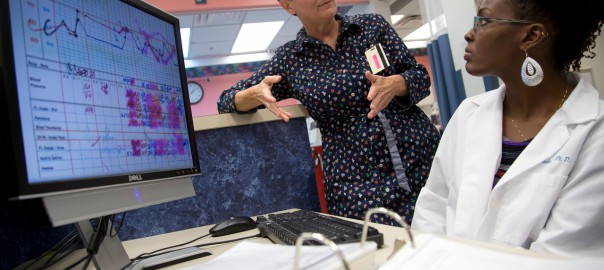Big Data is known for its use in marketing and CRM, but it’s also being used to improve healthcare in a variety of areas.
One area is treatment. Patients with serious health problems (and eventually, even “not-so-serious” problems) will be equipped with sensors connected to massive databases. Real-time communication between the sensors and knowledge repositories will be able to accomplish tasks such as alerting patients to medical needs and warning them of impending health issues (even heart attacks!). Another advantage is that doctors will have access to the sensor data and can use it to make much more precise diagnoses and treatment plans.
Another area is control. For example, states and countries are already using big data analysis to track flu outbreaks. This, in turn, helps health organizations make decisions regarding funding, targeting, awareness campaigns, etc. Insurance companies are also beginning to show interest in Big Data sensor applications; some may begin voluntary “wellness” programs where employees would wear sensors to track their behavior and receive lowered insurance rates.
As the use of Big Data grows, the demand for data analysts continues to expand. To help meet that need at a local and even statewide level, SPC has implemented a new five-course Data Analytics sub-plan in its Technology Management BAS degree. The courses cover business intelligence, data mining, and data analytics technologies and managements concepts.
If you love finding patterns and trends in data and numbers, data analytics may be the field for you.

